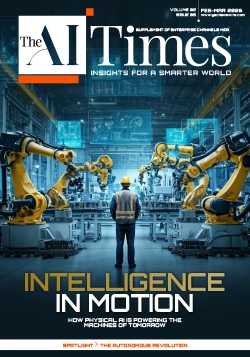Today, several large enterprises are handling increasingly more data, which will require more complex algorithms. More complex algorithms are able to learn hidden patterns from the data, by themselves, which is why they are useful — they can deal with problems that a human brain could not understand. And that’s where Enterprise AI brings an edge.
Enterprise AI is the ability to embed AI methodology into the very core of the organisation and into the data governance strategy. This means augmenting the work of people across all teams and disciplines with AI for more innovative operations, processes, products, and more.
The following are the challenges for teams that do not have a collaborative data science platform.
Access to systems
Whether accessing the various data sources or the computational capabilities, doing so in a remote setting can be challenging.
Collaboration within teams
Without the physical in-office proximity, individuals can become siloed in the execution of their data projects.
Collaboration across teams
Data projects require buy-in and validation from business teams and also require data engineering and other teams to help with operationalisation.
Reuse over time
Capitalising on past projects is key to maintaining productivity and reducing duplicate work. The lack of in-person discussions can limit this ability.
More and more organisations see the need to provide a centralised, controlled, and elastic environment to support the exponential growth in the amount of data, the number of AI projects, and the number of people contributing to such projects.
A lot of businesses struggle to get started on their Enterprise AI journey over the years and some have thrived. The companies that succeed are the ones that go beyond leveraging Enterprise AI for one particular project or use case and instead focus on scaling it out to a level that will sustain the business in the future.
Dataiku provides a simple UI for data wrangling, mining, visualisation, machine learning, and deployment based on a collaborative and team-based user interface, accessible to anyone on a data team — from data scientist to beginner analyst — and therefore appeals to all organisations across a myriad of industries.
A lot of businesses struggle to get started on their Enterprise AI journey over the years and some have thrived.
Dataiku allows enterprises to create value with their data in a human-centered way while breaking down silos and encouraging collaboration. One of the most unique characteristics of Data Science Studio is the breadth of its scope and the fact that it caters both to technical and non-technical users. Through DSS, we aim democratise data science and empower people through data.
Here are some of the best practices around AI that will shape the future of the industry.
Collaboration
Collaboration is about making AI more widespread and relevant through access to a wider population within the organisation. Part of the reason that collaboration is used a lot is because it actually has two distinct parts:
Horizontal collaboration refers to people working together with others who have roughly the same skills, toolsets, training, and day-to-day responsibilities. For example, data scientists with other data scientists or analysts with other analysts.
Companies that succeed are ones that go beyond leveraging Enterprise AI for one use case and focus on scaling it out
Vertical collaboration refers to people from across teams working together who might have vastly different responsibilities, viewpoints, and who — importantly — use very different tools, usually.
Responsible AI
Accountability
Ensuring that models are designed and behave in ways aligned with their purpose.
Sustainability
Establishing the continued reliability of AI-augmented processes in their operation as well as execution.
Governability
Centrally controlling, managing, and auditing the Enterprise AI effort.
Elasticity
There is no question that elasticity or on-demand compute resource management and flexibility, is the future of Enterprise AI. Organisations need the ability to scale resources up and down depending on their needs.
Enterprise AI is ability to embed AI methodology into the core of the organisation and into data governance strategy, which means augmenting the work of people.

























